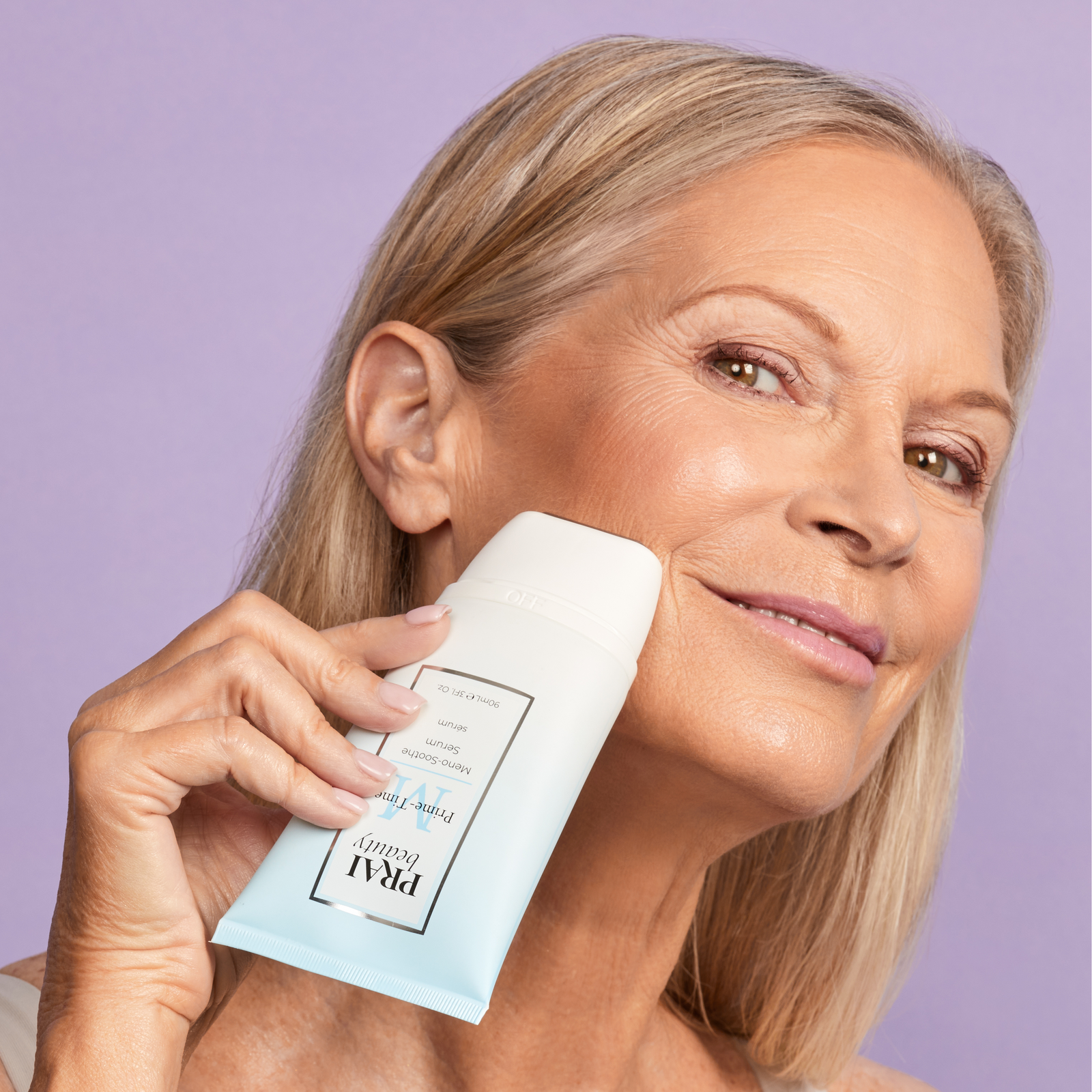How to Deal with Rosacea and Menopause

If you’re over 40 and battling red bumpy skin and spots, you may be wondering why your skin is suddenly behaving like an angry teenager. There could be a surprising explanation: rosacea. This common skin condition is easily misdiagnosed but often makes an appearance in midlife, particularly around the menopause. Understanding what’s behind these stressful flare-ups, and the best ways to deal with them, is the first step to reclaiming control and feeling better about the skin you’re in.
What is rosacea?
“Rosacea is a chronic skin condition affecting about 10% of the population,” says consultant dermatologist Dr Alia Ahmed. “It’s commonly seen as persistent background redness (across the nose, cheeks, forehead and chin) in lighter skin types, or as a change of hue or feeling of warmth in skin of colour.” Some people also experience small red spots/bumps, patchy dryness, burning and stinging. Over time, redness can intensify and tiny blood vessels may appear (and not fade away). As it mostly affects the face it can make you feel self-conscious, embarrassed or lower your self-esteem.
What causes rosacea?
Although the root causes aren’t fully understood, we know that it typically makes an appearance between the ages of 40-60, predominantly affects fair-skinned women and may run in families too. Rosacea is your body’s response to inflammation and certain triggers are known to cause flare-ups. Common culprits include alcohol, spicy foods, cheese, caffeine, hot drinks, hot baths and even aerobic activity like running.
How does menopause affect rosacea?
Rosacea is thought to be triggered by hormonal changes too – and menopause represents the biggest hormonal shift in a woman’s skin since puberty! The swift decline in oestrogen levels from your 40s has a big impact on skin, making it thinner, drier and more sensitive. Essentially this means your skin’s natural barrier is impaired, making it more vulnerable to irritation. Throw in the general stress and anxiety of midlife and it’s easy to see why rosacea can suddenly become a problem. “Often menopause is the first time a woman realises that what she thought was skin sensitivity, is in fact rosacea,” says Alia. If in doubt, visit your GP or a dermatologist who can help you get a formal diagnosis.
Is rosacea linked to hot flushes?
About 75% of women will also experience hot flushes during menopause – a sudden feeling of intense heat accompanied by red, flushed skin. While hot flushes don’t cause rosacea as such, they can make skin more susceptible to redness in general and, of course, make the whole rosacea experience feel much worse.
What’s the best way to treat it?
There’s currently no cure for rosacea but most people happily manage and minimise the condition by avoiding their triggers and prioritizing skincare and self-care. It’s good to know that rosacea tends to come and go and you may only need help for occasional flare-ups, such as at menopause.
Why is skincare so important?
Knowing that rosacea is an inflammatory disorder means it’s really important to use gentle, soothing skincare which works to reduce inflammation on a daily basis.
MenoGlow is a skincare range designed specifically for issues experienced around menopause and is packed with anti-inflammatory skin-savers. For instance, MenoGlow Collagen Boosting Cremegel Moisturisercontains Centella Asiatica, fantastic for calming and fortifying the skin barrier, as well as Sepicalm and Aloe Vera to reduce redness and irritation. The MenoGlow Hot Flush Cool Fix Serum combines the cooling power of Menthol with a refreshing rollerball applicator which instantly soothes hot, flushed skin, perfect for any flare-up emergencies. It’s equally important that your cleanser is gentle and non-aggravating. The MenoGlow Gentle Rebalancing Creme Cleanser doesn’t just effortlessly melt away dirt and makeup but actively reduces sensitivity.
Any other tips?
“Anxiety or stress is often a factor in rosacea so make time for mindfulness and relaxation,” says Alia. Try to do one thing every day that reduces stress. Even five minutes with a meditation app or a 20-minute daily walk can improve mental health and reduce the risk of flushing. “Also consider supplements such as probiotic and omega 3 fatty acids which can help improve gut health and reduce inflammation.” Remember, there’s always extra help available from your GP if you need it.
Discover the game-changing MenoGlow skincare range now at marksandspencer.com
The surprising midlife rosacea triggers
The best ways to treat rosacea during menopause



